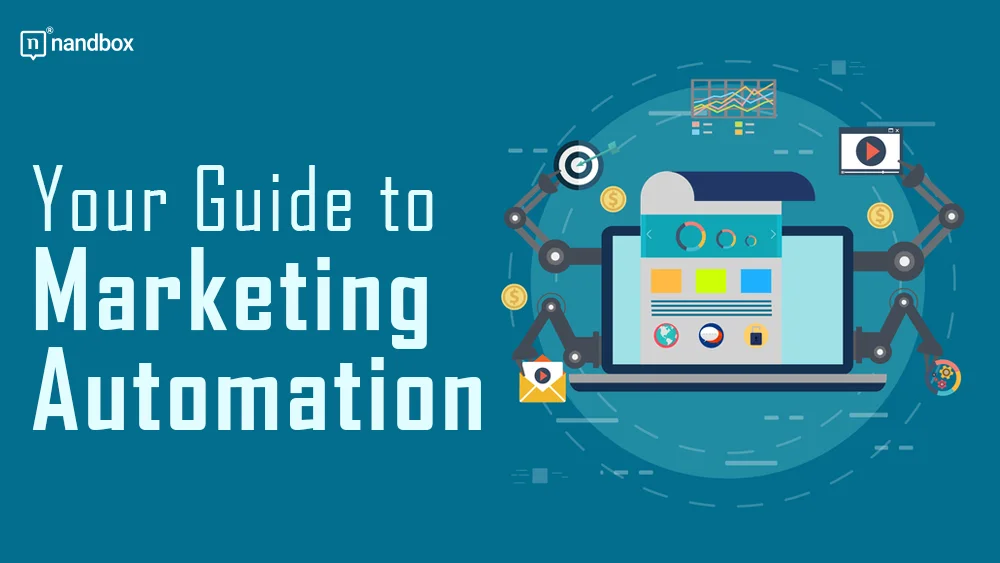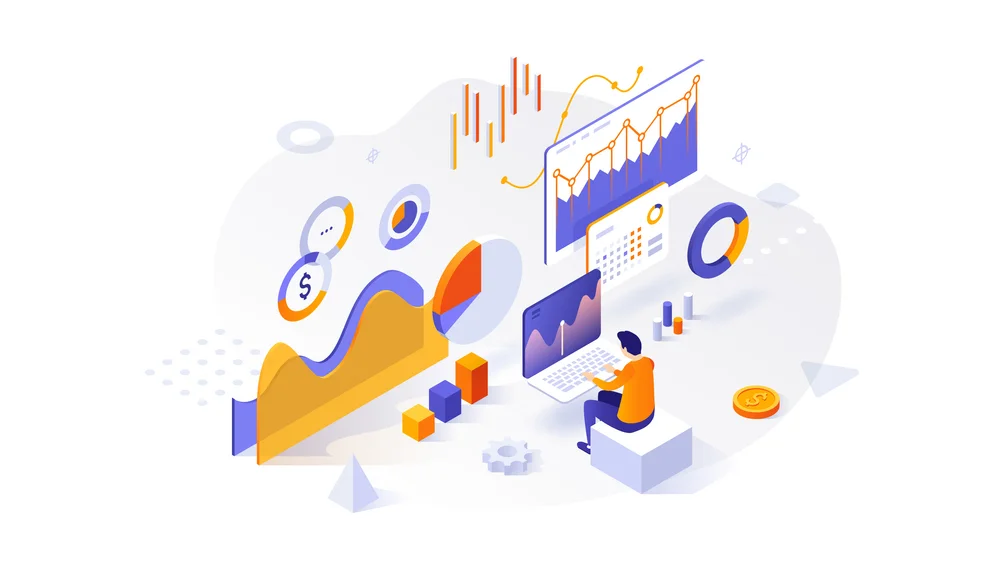Marketing automation refers to using technology to automate repetitive marketing tasks, allowing businesses to deliver personalized content and engage with leads at various stages of the buyer’s journey. This transformative technology allows businesses to automate repetitive processes, personalize customer interactions, and ultimately enhance productivity. By leveraging specialized software, marketers can save time, deliver targeted campaigns, and optimize their strategies for better results. Let’s see how the simplicity and power behind marketing automation make marketing efforts smarter and more effective than ever in this guide to marketing automation.
Evolution of Automation in Modern Marketing
Marketing automation has undergone a significant evolution. One of the pillars of a guide to marketing automation is adapting to the changing landscape of digital marketing. From simple email automation tools, the field has expanded to encompass comprehensive platforms that streamline various marketing processes. Key aspects of this evolution include:
Early Automation Tools
Initially, marketing automation primarily focused on email marketing, with tools automating the sending of emails based on predefined triggers.
Integration of CRM
The evolution saw the integration of customer relationship management (CRM) systems, enabling marketers to have a holistic view of customer interactions and personalize campaigns accordingly.
Multi-Channel Automation
Modern automation platforms go beyond email marketing, incorporating social media, content marketing, and other channels into automated workflows.
Importance of Automation in Modern Marketing
The importance of automation in modern marketing cannot be overstated, as it brings efficiency, scalability, and enhanced customer engagement. Some key aspects highlighting its significance include:
Operational Efficiency
Automation reduces manual workload, enabling marketing teams to focus on strategy and creativity rather than repetitive tasks.
Personalization and Customer Experience
Automation allows for personalized and targeted communication, improving the overall customer experience and fostering stronger relationships.
Data-Driven Decision-Making
With automation, marketers gain valuable insights into customer behavior, enabling data-driven decision-making for more effective and results-oriented strategies.
Marketing Automation in the Digital Age
In the Digital Age, marketing automation revolutionizes strategies by efficiently streamlining tasks, enhancing customer experiences through personalization, and empowering data-driven decision-making for targeted and impactful campaigns.
Streamlining Repetitive Tasks
Automation platforms excel at automating repetitive and time-consuming tasks, such as sending routine emails, updating contact lists, and managing social media posts.
By automating these tasks, marketing teams can save valuable time, allowing them to focus on more strategic and creative aspects of their campaigns.
Improving Operational Productivity
Marketing automation enhances overall operational productivity by providing a centralized platform for managing campaigns, analyzing data, and measuring performance.
Tasks like lead scoring, tracking customer interactions, and managing workflows become more efficient, leading to a smoother and more streamlined marketing process.
Tailoring Interactions for Enhanced Engagement
Marketing automation enables the creation of personalized customer journeys based on individual preferences, behaviors, and interactions.
Personalized content delivery, dynamic email campaigns, and targeted messaging contribute to a more engaging and relevant customer experience.
Building Stronger Customer Relationships
Automation fosters stronger customer relationships by delivering timely and personalized communication at every stage of the customer lifecycle.
Automated follow-ups, personalized recommendations, and behavior-triggered responses contribute to building trust and loyalty among customers.
Harnessing Insights for Informed Strategies
Marketing automation platforms gather and analyze data from various touchpoints, providing valuable insights into customer behavior, preferences, and campaign performance.
Marketers can leverage these insights to make informed decisions, refine strategies, and optimize campaigns for better results.
Improving Targeting and Segmentation
Automation tools allow for advanced targeting and segmentation based on demographic data, online behavior, and engagement history.
This granular approach ensures that marketing messages are delivered to the right audience, improving relevance and increasing the likelihood of conversion.
Integration with Overall Marketing Strategies
Seamless integration of marketing automation with overarching strategies is pivotal, aligning automated processes closely with business goals for targeted outcomes.
This synergy enhances multi-channel campaigns, ensuring a cohesive, personalized customer experience across diverse touchpoints
- Aligning Automation with Business Goals
Marketing automation becomes a powerful ally when seamlessly integrated with overarching business objectives. Here’s a detailed exploration:
-
Define clear objectives:
Begin by identifying and articulating specific business goals, such as lead generation, customer retention, or revenue growth.
-
Customized automation workflows:
Tailor automation workflows to align with these goals, ensuring that every automated process contributes directly to the broader business objectives.
-
Performance Metric Alignment:
Establish key performance indicators (KPIs) that reflect progress toward business goals. This allows for continuous monitoring and optimization of automation strategies.
-
Adaptability to Changes:
As business goals evolve, marketing automation should be flexible enough to adapt. Regularly reassess and adjust automation strategies to align with any shifts in organizational priorities.
Enhancing Multi-Channel Marketing Campaigns
Integrating marketing automation with a multi-channel approach amplifies campaign reach and effectiveness. Here’s an in-depth look:
-
Comprehensive Customer Journey:
Develop automated workflows that span multiple channels, creating a cohesive and consistent customer journey. This may include email, social media, website interactions, and more.
-
Unified Customer Profiles
Ensure that automation platforms integrate with Customer Relationship Management (CRM) systems to maintain unified customer profiles. This allows for a seamless transition between channels without loss of context.
-
Personalization Across Channels
Leverage automation to deliver personalized content and messaging across various channels. This enhances the overall customer experience and reinforces brand consistency.
-
Data Synchronization
Establish synchronization between different channels to maintain accurate and up-to-date customer data. This enables marketers to make informed decisions and ensures that customers receive relevant communications.
-
Campaign Attribution Modeling
Implement attribution models that consider the influence of each channel in a customer’s journey. This insight helps optimize budget allocation and refine strategies for better overall performance.
User-Centric Focus and Future Trends
As marketing automation continues to evolve, a user-centric focus becomes increasingly important. This involves understanding and adapting to the preferences and needs of the end-users. Key considerations and future trends include:
User-Centric Automation
The future of automation lies in putting the user at the center, creating experiences that are tailored to individual preferences and behaviors.
AI and Predictive Analytics
Artificial intelligence (AI) and predictive analytics are shaping the future of marketing automation, allowing for more intelligent and anticipatory campaigns.
Integration with Emerging Technologies
Marketing automation will likely integrate with emerging technologies such as augmented reality and voice-activated devices, expanding the scope of personalized and interactive marketing experiences.
Conclusion
In a nutshell, in this guide to marketing automation, we learned that marketing automation in the digital age is a multifaceted tool that not only enhances efficiency and saves time but also elevates the overall customer experience through personalized interactions and data-driven decision-making. It empowers marketers to create more targeted and effective campaigns, ultimately contributing to business success in the dynamic digital landscape.
Author Bio:
Aabhas Vijay stands as the creative and imaginative founder behind Avija Digital, an agency that specializes in crafting ingenious online strategies and trust worthy marketing solutions. Aabhas has demonstrated himself as an outstanding authority in the realm of digital marketing, specifically SaaS (software as a service). He is an exceptional expert in brand positioning, content creation and audience engagement. Moreover, Aabhas’s prime focus is on organizing cohesive strategies and formulating plans that lead to long-term brand sustainability.





